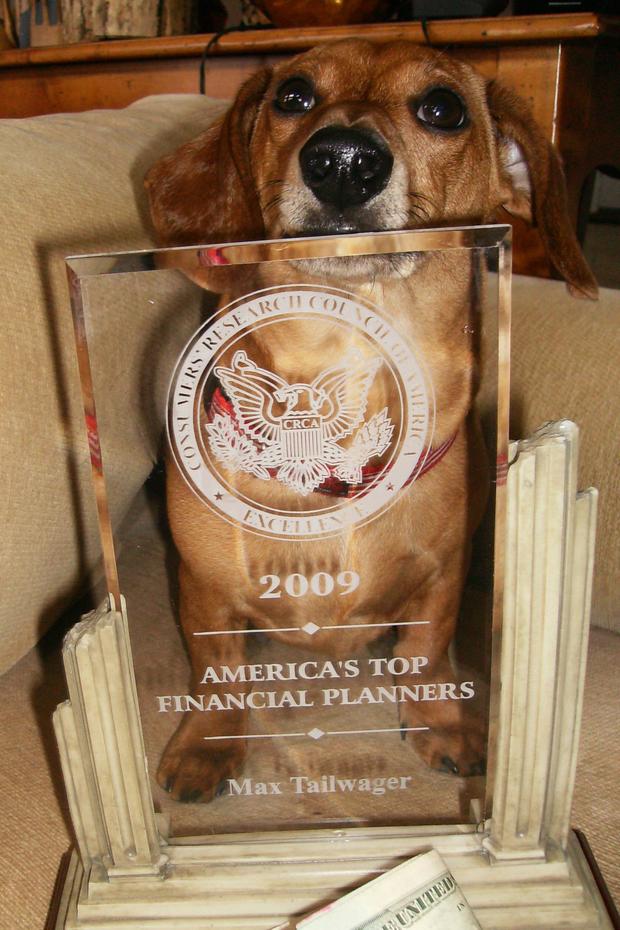Invest like a dog, not a cat
(MoneyWatch) It's no surprise to anyone these days that our nation is deeply divided into two separate camps, both of which are adamant about their ideological positions. No, I'm not talking about politics, I'm talking about the age-old debate of whether dogs or cats make better pets.
When it comes to the rift between dog people and cat people, never the twain shall meet. Now while I have my own view (dogs rule!), there is another important issue to consider -- which furry friend make better investors?
Sorry kitties, dogs take the lead here as well. And you too can profit by investing like a dog.
Cat investing
My former CBS MoneyWatch editor, Jack Otter, once sent me a link to an article in British daily The Guardian, "Investments: Orlando is the cat's whiskers of stock picking," about a feline who bested both professionals and academics in picking stocks in 2012.
According to the article, Orlando the cat selected stocks by throwing his favorite toy mouse on a grid of numbers allocated to different companies. Orlando picked five stocks that together earned 10.9 percent for the year, while the professionals and students earned only 3.5 percent on their portfolio.
- My Dog - America's top financial planner
- The stock market game - investing or gambling?
- 3 investment predictions for 2013
Though I was going to try to reach Orlando for an interview, the article noted "a spokeswoman for Orlando said he was not available to give an interview because of a claws in his contract." Ouch. Still, with returns like that, Orlando definitely earned his Friskies as the top cat in investing.
Dog investing
I didn't have to look across the pond to find the top dog of investors, as the winner was much closer to home. No really, he's in my home. It's my brilliant dachshund, Max Tailwag'er. And it's not just me who thinks so, I swear. Take a look at the plaque he was awarded by the Consumer's Research Council of America, recognizing him as one of America's Top Financial Planners. In your face, Orlando.
After reading the piece on Orlando the cat, I decided to test my theory that it is dogs who are investors' best friend. So I laid out the stock page and grabbed Max's favorite slobbery and disgusting toy Wubba. And after we ran through the drill a few times ("Here, Max, drop it here. No here, here, here"), I threw it for him to fetch and anxiously waited to see which stock he would drop it on so I could decide which one to buy. Max scurried to fetch his toy, but instead of dropping it where I'd be able to select stocks, he kept bringing the toy back to me, time and time again. Maybe he did that because of the famous dachshund stubbornness, or maybe he was a slow learner, or maybe for another reason all together.
That other reason is a little anthropomorphic theory I have, which was that Max wasn't going to play that game. Why, you may ask? Because Max knew that picking stocks was foolish. Orlando's 10.9 percent return in 2012 badly lagged the Vanguard Total International Stock Fund (VTIAX) of 18.2 percent and even the Vanguard Total Stock Index fund (VTSAX) of U.S. stocks earning 16.5 percent. See, Max knew all this because he had been eavesdropping on our conversations at the dinner table.
I'm quite sure that Max was thinking how foolish it is to pick individual stocks when one could own the entire globe with dirt-low fees. If he could talk, I suspect he'd say that stock-picking just increases risk and that's just speculation, not investing; indeed, perhaps only a cat would think that was a good idea.
Investing is no game
I firmly believe that monkeys, cows, cats or even cockroaches can pick stocks better than professionals. That's because the professionals have emotions. But while picking stocks randomly is better than paying a professional boatloads of money to underperform, listen to Max's wise counsel that "stock picking is a fool's game."
In the next few weeks, however, my 15-year-old son will be playing "The Stock Market Game" in school for the second time. The winning portfolio will consist of three or so stocks that perform the best over several weeks, with the exercise taught under the guise of investing.
What this allegedly educational game, funded by Wall Street firms, really teaches is how to gamble. In real life, there are consequences for speculating. But neither Orlando nor the students playing the stock market game face the downside consequences of losing. Later in life, however, the students will have real money to turn over to brokerage firms to speculate.
